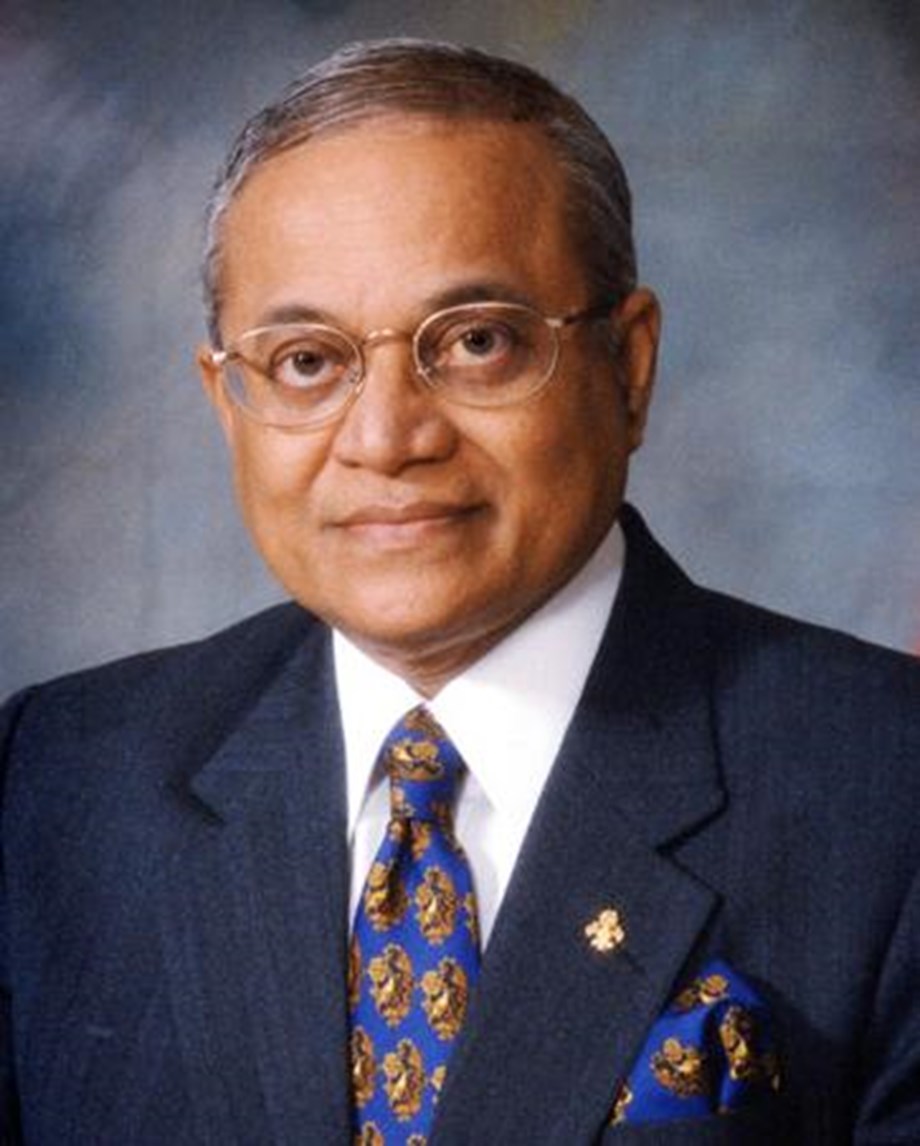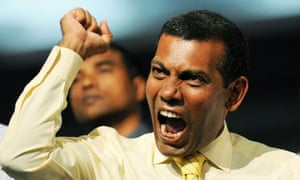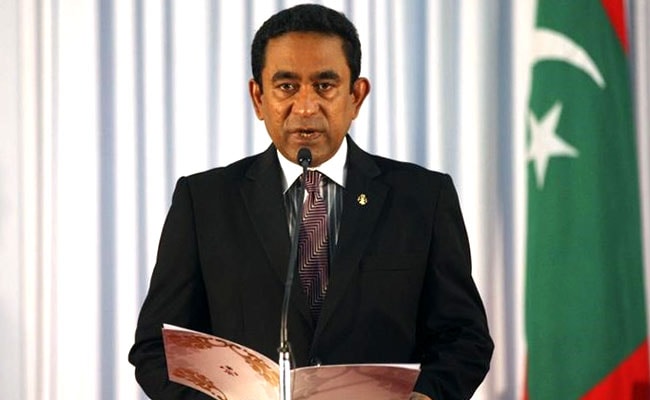Midnight Thoughts #5: Maldives — Stunning Beach, Horrid Politics And a Sense of Familiarity
Ahh Maldives, often top the list of best place to visit, a must-go destination before you die, and most beautiful beaches in the world. With her sandy beach, crystal clear waters, astonishing underwater world, it’s not hard to see why Maldives will top all those lists easily. In 2016 alone, almost 1.3 million tourists visited Maldives and it increased another 0.1 million last year.
While we drolled over their fantastic scenery, what about the politics in Maldives? I first learned about it when I met two Maldivians in the bookstore where I interned last July. They actually shared with me what is really going on in their country. “It is a paradise for the tourists but it is a horrible place for us people”. They said.
If you wanted to know briefly about the politics in Maldives before dive right into this article, Amal Alamuddin (George Clooney’s wife) explained it quite well in this video since she is representing one of the key politicians in Maldives, will talk about that later.
To explain the politics of Maldives, there are a few figures I need to introduce. The first one would be Maumoon Abdul Gayoom. He is Asia’s longest-serving ruler since 1978 till 2008, a whopping 30 years in power. His greatly improved Maldives’ tourism but behind the curtain, he was ruthless and corrupted. There were several coups which attempted to topple his government but it all failed. The biggest coup happened in 1988 and it was put down by the interference of the Indian troops. It was until 2008, a new constitution was approved and the first direct presidential elections occurred. Did his influence stop there afterward? Not quite as he continues to play a big part in Maldives' politics until today.
 |
| Still got it at the age of 80. Image taken: Wikipedia |
Next, Mohamed Nasheed, leader of the Maldivian Democratic Party (MDP) is the one who replaced Gayoom. Nasheed was a former human rights activist and led a campaign of non-violent, civil disobedience against Gayoom. He even dubbed the Mandela of the Maldives. However, just 4 years later, he was forced to resign after series of protest and political maneuvering by none other than Gayoom. One major flaw in Maldives democratic institution was the judicial body handpicked by Gayoom himself. Therefore, Gayoom and his allies will be well-protected. Nasheed then ordered the arrest of criminal court judge, Abdulla Mohamed in January 2012 but this turned out to be an unpopular decision as it was widely condemned and prompted nightly protests in Male, the capital city of Maldives. On 7 February 2012, the police mutinied, forced Nasheed at gunpoint, to resign.
Vice-president Mohamed Waheed Hussain Manik, who Nasheed accused of being one of the orchestrators behind the coup, held office for a short while until the 2013 presidential election which saw Gayoom half-brother, Abdulla Yameen somehow won the election. So basically, the Gayoms is back in control and that's the beginning of a downfall in Maldives' democracy.
 |
| Young and always ready to fight for the people. Image taken: The Guardian |
Soon enough, Maldives announced new law to end 61-year moratorium on capital punishment in 2014 (though it was delayed again and again). Then, Nasheed had been sentenced to a 13 years jail-time which was said to be politically motivated. He eventually granted asylum in the UK and represented by Amal Alamuddin. Besides, Yameen began to outlaw protests and jailed the leadership of every opposition party. Meanwhile, local journalists have mysteriously disappeared or murdered. This eventually gained international and also the UN attention. Virgin CEO Richard Branson urged people to boycott the Maldives until true democracy is installed. In October 2016, Maldives announced they will be leaving the Commonwealth. In between, there were of course protests, a declaration on state emergency and Yameen went so far to accuse and impeach his own Vice-President Ahmed Adeeb. It was then, that even his own half-brother could not tolerate Yameen anymore and surprisingly accepted his political rival Nasheed’s invitation to join alliance this March 2017 to restore democracy in Maldives. Do bear in mind that Gayoom is the one who wanted to send Nasheed to prison.
 |
| More ruthless than his half-brother. Image taken: Reuters |
In late July 2017, there was a move to impeach the parliamentary speaker, the first step to overpower Yameen's government. It was scheduled to have been taken up Monday 24 July BUT the government denied there was one and gates of parliament were padlocked. Chaos ensured as the people protested while police force further blocked the road leading to the Parliament building, which was clearly an obstruction of democracy.
Although the judiciary power Yameen holds used to be the biggest obstacle for the opposition coalition, in February 2018, the Supreme Court unexpectedly choose to favor the people and ordered the release of nine dissidents and the reinstatement of twelve legislators who were fired for abandoning Yameen's party. This ruling gave the opposition an opportunity as they gained a majority in the legislative assembly. This is when Yameen's government declared a 15-day state of emergency. The court later reversed its decision after the chief judge Abdulla Saeed and Justice Ali Hameed arrested by the police after being accused of taking bribes. Moreover, Gayoom was arrested in the crackdown and sent to a prison island. He last tweeted:
A large number of @PoliceMv around my residence. To protect me or to arrest me? No idea. @USAmbKeshap @AkhileshIFS @MNDF_Official @hrcmv @amnesty— Maumoon Abdul Gayoom (@maumoonagayoom) February 5, 2018
So what's next for Maldives? Foreign intervention seemed imminent. Nasheed has already called upon India to step in while Yameen sided with China (and WE all know the current relationship between India and China). In addition to that, politics is not Maldives only problem. Economy, specifically China land grab and the growing of Islamisation were the country major concerns too. In order to improve things in Maldives, a change of government is needed. Besides that, judicial reform is strongly needed in order the country to be more democratic. As the author of Maldives: Islamic Republic, JJ Robinson wrote, "The Maldives' political soap opera won't end without judicial reform." He further explained:
"at least 50% of the 200-odd judges and magistrates have less than seventh-grade education, while a quarter had actual criminal records, including convictions for sexual misconduct, embezzlement, violence and disruption of public harmony."
Also, as I continue to write about Maldives, I found striking similarities with my home country Malaysia. Obviously, Malaysia is still much more democratic than Maldives but the similiarities are there for you to witness. Both have a ruthless dictator who ruled the country for a long period of time, a ruler who replaced his own right-hand man, not to mention old foes joining hands to stand against a bigger enemy and more recently a former rule was thrown into prison.
 |
| Both have crystal blue sea water too! Image taken: Hotelopia and Amazing Borneo |
With the country election will be set around this year (another similarity!), I wonder will the people understand the political reality in their country by voting out the current government, or spoil their votes due to the fact their Mandela was willing to forgo his principles and work with his arch-enemy. All in all, all the best Maldives. Fingers crossed I can visit the place one day, with a more stable political climate of course.
UPDATE: as I am going to publish my latest blog post, I stumbled upon this article and it almost made my jaw dropped. Apparently, the bribe received by chief justice Abdulla Saeed and Justice Ali Hameed, which were $15 million each and paid into their accounts in (drumroll please) MALAYSIA. The article also pointed out:
"Malaysian intelligence picked up the details of this transaction and passed on this information to the Maldivian government."
Wow, never thought Maldives and Malaysia are close.



Comments
Post a Comment